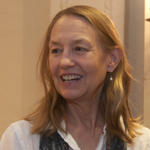Mary Ann Dzuback, PhD, director of the Program in Women, Gender, and Sexuality Studies in Arts & Sciences at Washington University in St. Louis, identifies some key issues of importance to women and non-heterosexual American voters in this year’s elections.

Among the key issues are women’s reproductive rights, access to health care, equal rights for non-heterosexual Americans and equal pay for equal work.
Dzuback, a professor of women, gender, and sexuality studies, of education and of history, all in Arts & Sciences, offers some comments here:
• On reproductive issues: “The majority of women in the United States, no matter their race, ethnicity, social class, and educational levels, believe that reproductive decisions, particularly those concerning their own bodies, should be left to them and, in many cases, their families to make. Even women who oppose choice with respect to pregnancy and abortion believe that control of contraception is their right and their decision to make. Most believe it is a private decision and that that privacy should not be abridged by the state.”
• Health care: “The majority of American women believe that there should be universal access to high quality health care for all Americans and that all Americans should be able to choose the health care practitioners they wish for themselves and their families. The disastrous experience of the Komen Foundation and the reaction of American women to that group’s decision to de-fund Planned Parenthood is an example of American women’s commitment to access to health care for all women.”
• Adequate representation of women in the work place and in politics: “American women and men believe in equal pay for equal work. Even those who profess not to hold feminist commitments believe that people should be paid fairly for their labor and that race, ethnicity, and gender should not be used to determine access to work or compensation for that work.”
• Equal rights for non-heterosexual Americans: “Most Americans between the ages of 18 and 40 believe that all persons — regardless of sexual identity — should be protected from violence, discriminatory laws, and other forms of discrimination, and should have access to legal recourse as all Americans should. This is a generational change, one that has gained salience in the past 10 years, as more people of prominence have gone public with their sexual and gender identity. Even older Americans, particularly those who know people of non-heterosexual orientation, are beginning to shift their positions on these issues. Those who do not think the state should sanction gay marriage still believe that gay and lesbian Americans should be able to form partnerships and that their civil rights should be protected by law.”
Dzuback says that she bases her conclusions on the range of research and polls that have been conducted on these issues over the past 10 years.
“These are still thorny issues in our culture, and there may never be consensus, but the majority of Americans believe in fairness, taking care of the ill, vulnerable, elderly, and poor, and ending discrimination based on race, ethnicity, gender, age, and sexual orientation,” Dzuback says.
Editor’s note: Dzuback is available for taped and live-remote
interviews via the university’s broadcast studio, which is equipped with high-definition, broadcast-quality audio (ISDN) and video (vyvx)
transmission lines.